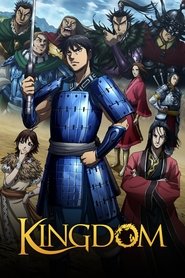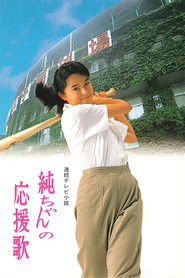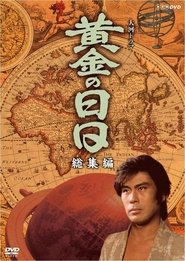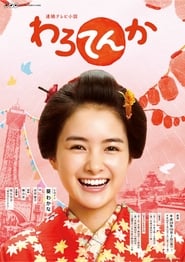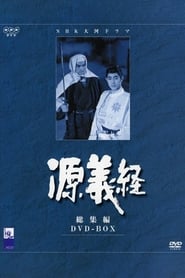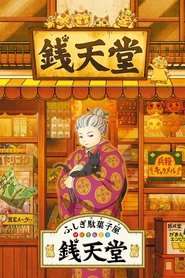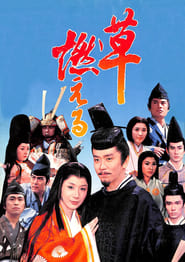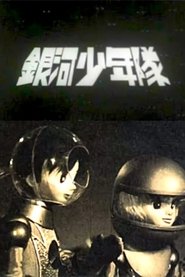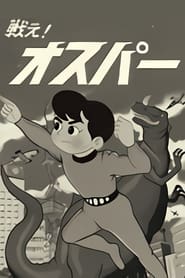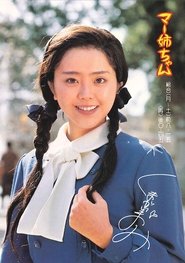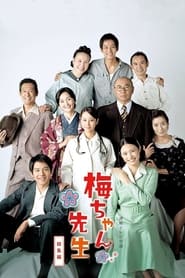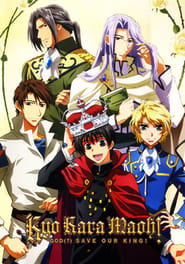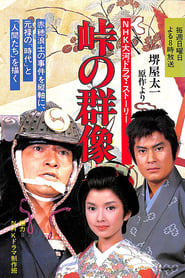Nhk TV Series - Page 2
-
Dandan
2008
Dandan
2008
The twin girls Tajima Megumi and Ichijo Nozomi was separated at birth after their parents had divorced. Years later they meet each other. Both of them have a career within the entertainment industry. Megumi who lives in Matsue, Shimane sings in the band Shijimijiru, and Nozomi is a maiko, an apprentice geisha in Kyoto. -
Manpuku
2018
star 9Based on true story of the wife of Ando Momofuku, the businessman who founded Nissin Food Products Co. Ltd. and the inventor of instant ramen, the 99th Asadora follows the life of Tachibana Fukuko, a young woman who tries to survive tough times in Osaka with her husband from before WWII to the rapid economic development era. Together they overcome various setbacks before they succeed in creating instant noodles. (Source: MDL) -
Kingdom
2012
star 7.8In the Warring States Period of ancient China (475–221 BCE), Shin and Hyou are war-orphans in the kingdom of Qin. They dream of one day proving themselves on the battlefield. One day, however, Hyou is taken to the palace by a minister. Winding up on the losing side of a power-struggle, Hyou manages to return to the village, barely alive. Shin then meets a boy who closely resembles Hyou, Ei Sei. For now he is the king of Qin; later he will become the emperor Shi Huangdi. -
Jun-chan's Cheering Song
1988
The year is 1947, August. Ono Junko's family is being evacuated to Wakayama and the father is going to war. A few years later, the father has returned from Manchuria but he also brought a boy that had been abandoned by his mother. The boy is Yuta and the family will adopt him. -
Ōgon no Hibi
1978
Ōgon no Hibi
1978
Luzon Sukezaemon is a merchant who imports vases from the Philippines. The vases are highly valued as tea utensils and he makes a huge profit. This was the first taiga drama to concentrate on the lives of commoners and the reviled merchant class of the Tokugawa period. It documents the rise and fall of the merchant city of Sakai, as seen by its most famous resident, the semilegendary Luzon. -
Hanako & Anne
2014
star 7.3A Japanese girl from a poor family named Hanako went on an adventure to study in a girl's Christian school in Tokyo. She found her passion in English and step by step made her dream come true. -
Warotenka
2017
-
Ranman
2023
star 7.8The story of Makino Mantaro (Kamiki Ryunosuke), a botanist who ran through the Meiji era (1868-1912) in full bloom, begins. Born the heir to the Tosa sake brewery Mineya, Mantaro (Yurito Mori) is a boy who loves plants and flowers and led a straightforward life. His life was colored by the many vivid encounters he had with many people. People whom Mantaro met in his hometown of Kochi, and whose way of life and words gave him a guideline for his life. "Ranman," is a drama in which charming characters bloom freely around the main character, Mantaro, just like flowers. -
Chiritotechin
2007
star 8The 77th NHK Asadora is Chiritotechin. Location includes Fukui prefecture. This renzoku is about Wada Kiyomi (referred to as Kiyomi-B), a girl brought up in Fukui who moves to Osaka in search of her soul. In Osaka, Kiyomi-B becomes enchanted with rakugo, a Japanese traditional form of comic storytelling, and pursues a career in rakugo. In the summer of 1982, Kiyomi-B and her family move to Obama of Fukui, her father's hometown. Kiyomi-B's grandmother and uncle welcome the family, but Shotaro the grandfather does not allow Masanori to take over the Wakasa lacquer chopsticks making. One day, Kiyomi-B listens to rakugo at Shotaro's factory and becomes fond of it. Shotaro and Kiyomi-B become close through rakugo. -
Minamoto no Yoshitsune
1966
The chronicles of the life of Minamoto no Yoshitsune (1159 - May 17th, 1189). He was a late Heian and early Kamakura general of the Minamoto clan of Japan. Yoshitsune was the ninth son of Minamoto no Yoshitomo. His older brother Minamoto no Yoritomo founded the Kamakura shogunate. -
The Supernatural Sweet Shop
2020
star 6.5Zenitendo is a mysterious candy store that only lucky people can reach. All the candy recommended by Beniko, the owner of the store, is perfectly suited to the buyer's troubles. However, it depends on whether the candy will be used or eaten correctly that it can bring happiness or misfortune. -
銀河少年隊
1963
銀河少年隊
1963
-
Tatakae! Osper
1965
Tatakae! Osper
1965
-
Half Blue Sky
2018
star 7.8Suzume is a girl born to a family running a small restaurant in Gifu Prefecture. She loses her hearing in one ear from a disease. Encouraged by her loving parents and childhood friend, she lives through an eventful life with a tenacious spirit. -
Sister Ma
1979
Sister Ma
1979
A serialized television series, aired in 1979, based on Hasegawa Machiko's "Sazae-san Uchiakebanashi" (Sazae-san Confessions), which depicts the true vibrant energy and strength of the common people, through their laughter and tears, from the pre-war to the post-war period in Japan. -
Umechan Sensei
2012
star 8Umechan Sensei is a Japanese television drama series. It debuted on April 2, 2012. It is about a girl named Umeko Shimomura who, despite being overshadowed by her talented older brother and sister, and despite being thought of as a clumsy child, decides to follow in her father's footsteps and become a doctor. It is the 86th NHK Asadora. -
Kyo Kara Maoh!
2004
star 6.6Shibuya Yuuri, an ordinary high school boy got flushed in a toilet and he saw himself in another world. He was then declared as the 27th maou or the demon king of the Demon world by Gunter von Christ and Konrad Weller . When Yuuri now travels back to his new home (the castle), he meet up with Konrad's brothers. Wolfram von Biefield became Yuuri's fiancee when Yuuri slapped him for defending his mother's name. As a result, as the aristocrats tradition to propose a marriage, is by slapping one's left or right cheek with the back of your hand. By the time that Wolfram throw the knive and Yuuri picked it up, it means a battle between them. in their fight, Yuuri dodged Wolfram's majutsu and it hitted the girl just beside His Majesty. Yuuri got angry and turned into Maou, and punished Wolfram using his water majutsu. Yuuri fainted and when he came to senses after 3 days of sleeping, he did not remember anything that happened including using his powers. -
Baby Steps
2014
star 7.8Eiichirō Maruo (nicknamed "Ei-chan" for his grades being straight "A") is an honor student, bookworm, and is not interested in anything other than studying. In order to solve his problem of lacking physical strength, he enrolled a tennis school and soon found the fascinating side of tennis. Being a tennis newbie lacking physical strength, he supplement his shortcomings with his excellent observing and analyzing skills. -
Toge no Gunzo
1982
Toge no Gunzo
1982


